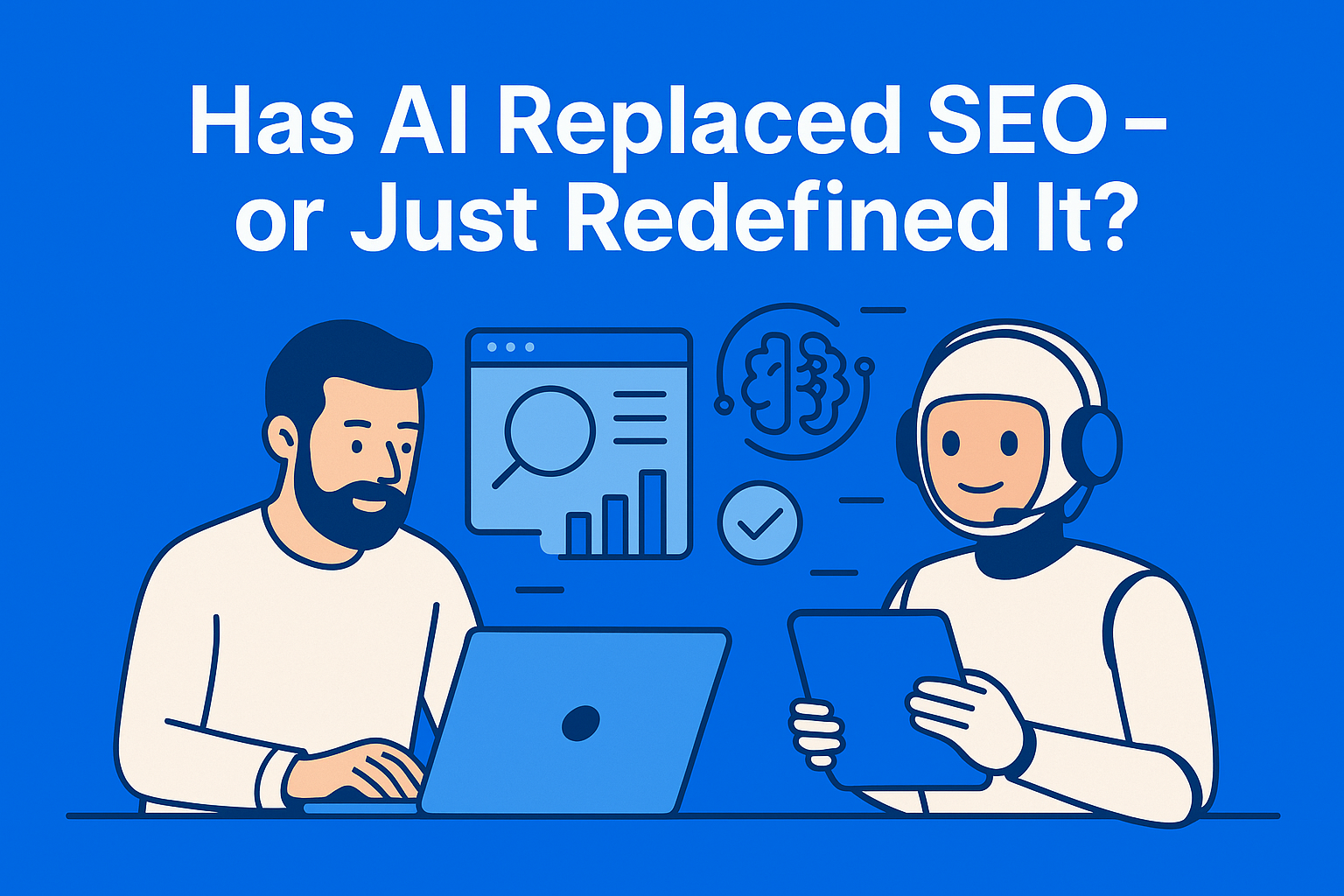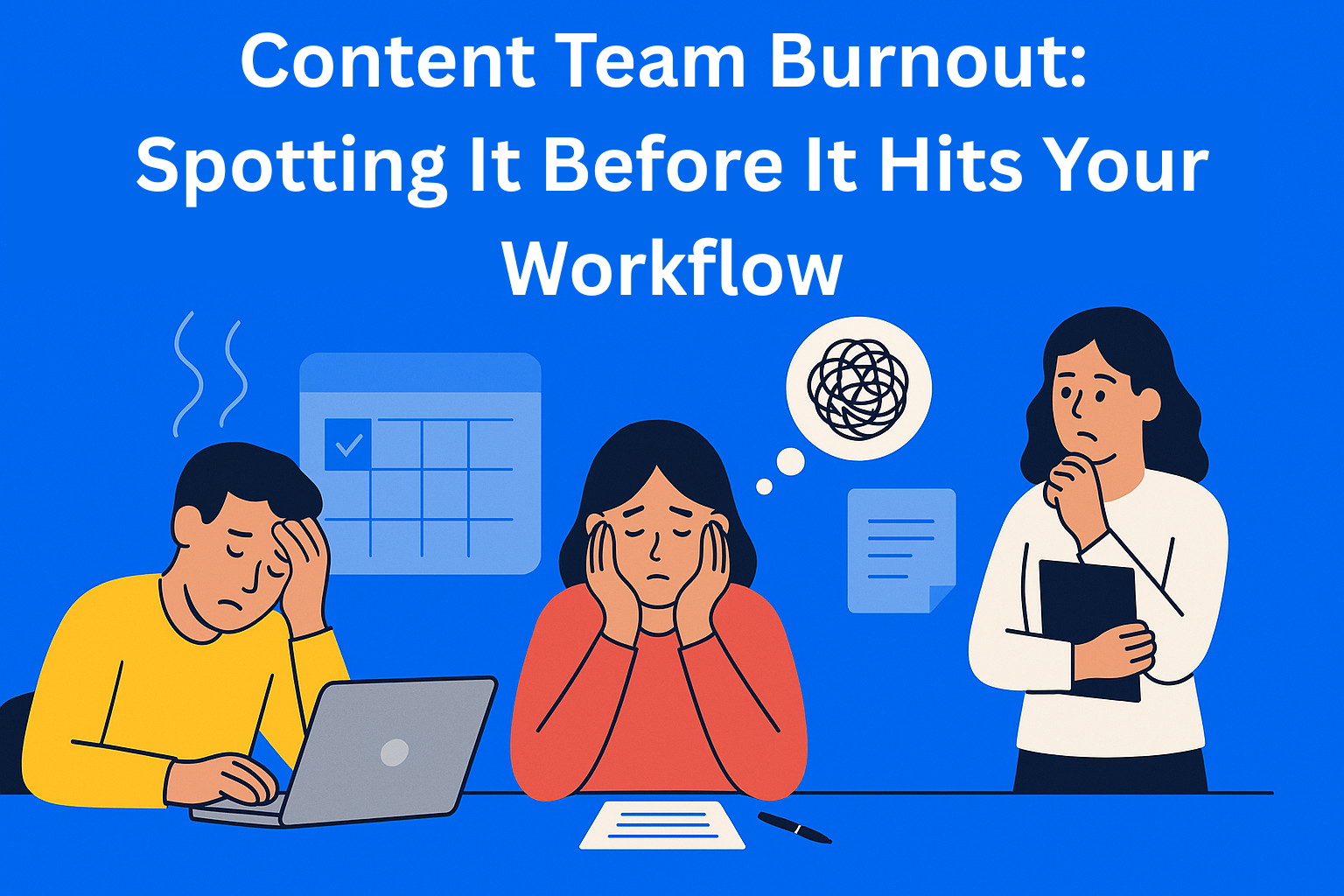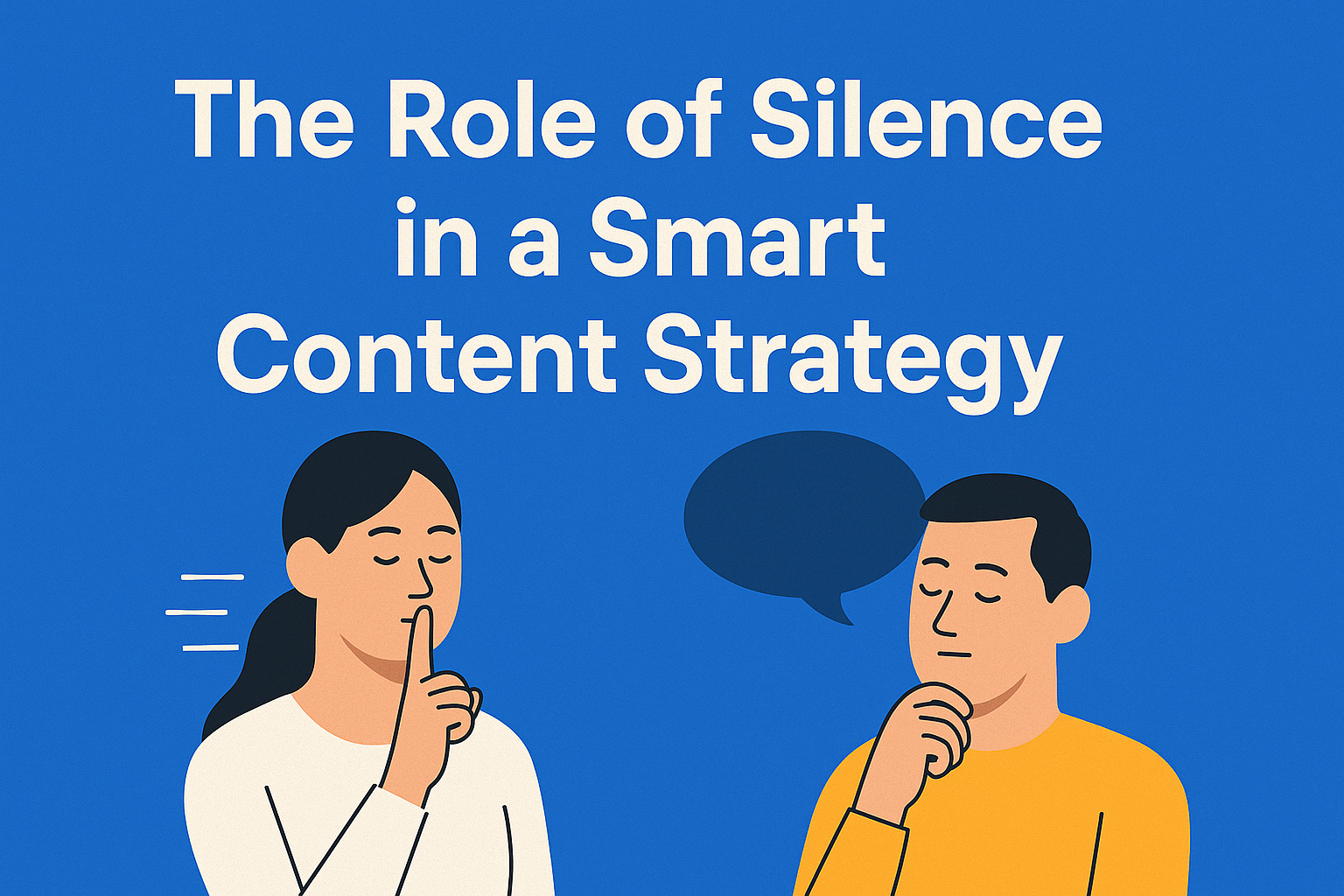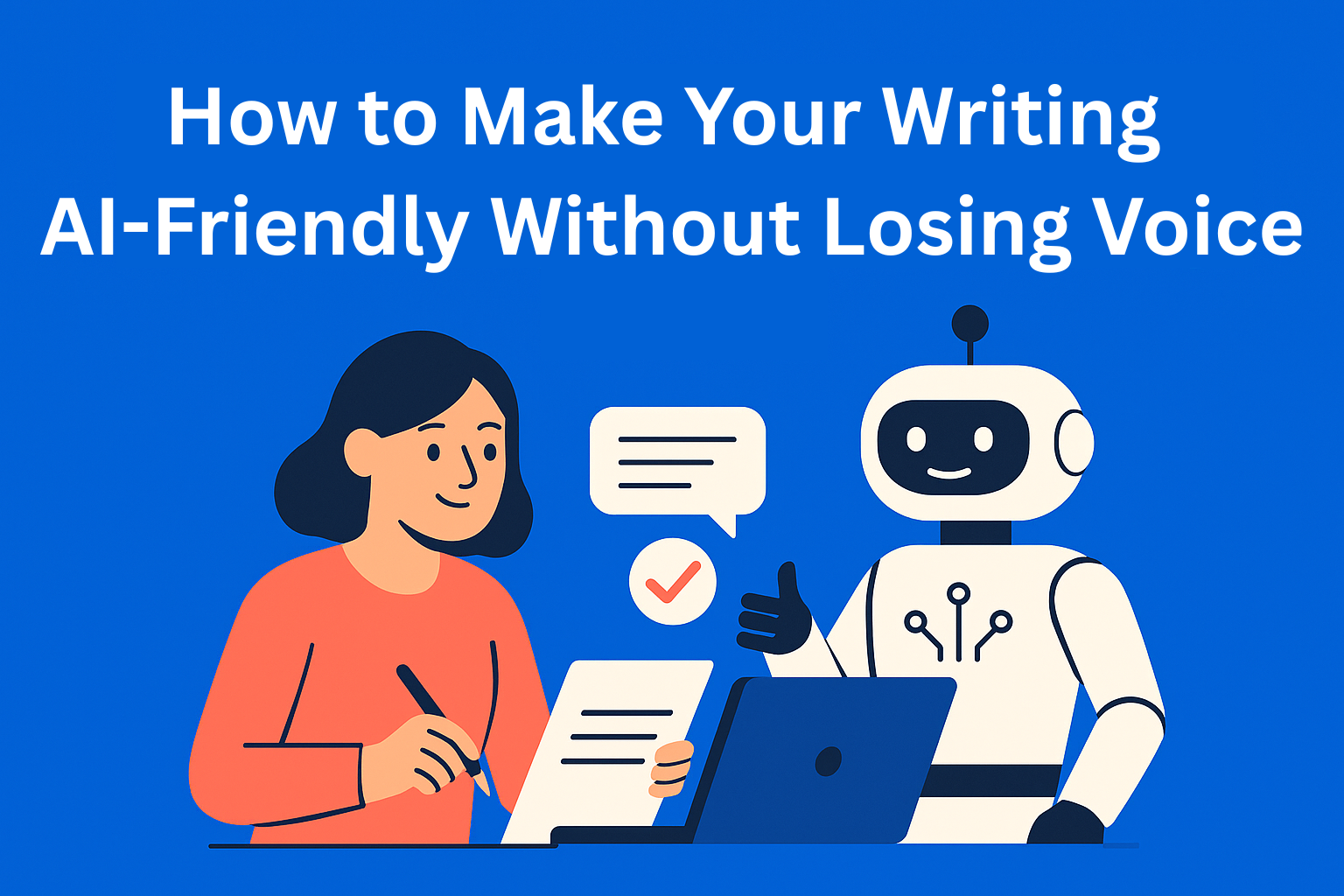Has AI Replaced SEO - or Just Redefined It?
AI hasn’t replaced SEO, it’s redefined it. Learn how search is shifting from keywords to clarity, structure, and trust as marketers adapt to an AI-driven world.

There was a time when SEO was simple. You added the right keywords, a few backlinks, and hoped Google would love your page. But today, things are different. Instead of optimizing for algorithms that just crawl pages, we now optimize for artificial intelligence that understands meaning, context, and purpose.
The arrival of AI tools like ChatGPT, Google Gemini, and Perplexity has completely changed how people search for information. They no longer type “best restaurant in my city” and scroll through ten links - they ask AI and get an instant answer. This is the beginning of a new era in digital marketing.
So, the question isn’t whether SEO is dead, but whether AI has simply redefined it.
Key Takeaways
- AI didn’t kill SEO - it redefined it - optimization has shifted from keyword stuffing to context, clarity, and usefulness.
- Search is now about meaning, not exact phrases - AI understands user intent and values structured, helpful content over repetitive keywords.
- AIO (AI Optimization) is the new SEO - write for models like ChatGPT and Gemini by offering clarity, logic, and topical depth.
- AI chooses trustworthy and well-structured sources - formatting, subheadings, schema, and authority help AI understand and surface your content.
- Success is measured by trust, not just traffic - being cited by AI is now as important as ranking on Google’s first page.
How AI Changed Search Behavior
A few years ago, SEO was all about keywords. If you wanted to rank for a phrase like “best running shoes,” you just repeated that phrase multiple times in your text. But today, that no longer works.
Artificial intelligence uses a meaning understanding model. That means it doesn’t just look at the words; it tries to understand the context behind them. When a user asks AI, “What are the best running shoes for long distances?”, the model doesn’t search for that exact phrase - it looks for content that explains factors like comfort, support, durability, and type of runner.
In short, AI SEO is no longer about repeating words - it’s about understanding meaning. AI models try to figure out what the user really wants, not just what they wrote. That’s why SEO today depends on how clear and useful your content is.
Also, fewer people are clicking on links because AI provides answers instantly. That’s why AI optimization is becoming increasingly important.
The New Definition of Optimization: From SEO to AIO (AI Optimization)
Optimization used to mean stuffing keywords, using H1 tags, and building backlinks. Now we write for AI models that understand text, tone, and logic.
The new AIO (AI Optimization) philosophy says: write clearly, structure your content well, and be genuinely helpful. Instead of chasing keywords, focus on topics. Instead of listing words, explain ideas. And instead of writing generic paragraphs, create content with depth.
For example, instead of saying, “The best running shoes are lightweight and comfortable,” it’s better to write, “When choosing running shoes for long distances, look for models that offer stability and cushioning, as they reduce the risk of injury during long runs.” AI understands the context and connects the information.
So, AI SEO doesn’t ask you to repeat words - it asks you to provide value.
Another big change: structure. Models better understand logical text divided into short paragraphs with clear subheadings. That’s why formatting has become a part of optimization. AI interprets structured information much better than a messy wall of text.
Why SEO Isn’t Dead - It Just Has a New Mission
Many were quick to declare the end of SEO, but that’s not true. SEO still exists, it just looks different now. You still need to write quality content, have a solid technical foundation, and build authority.
The difference is that SEO is no longer just about Google rankings. Now you write to become the source AI refers to when giving answers. When ChatGPT or other models respond to questions, they rely on sources that appear trustworthy, clear, and well-written.
In other words, you’re no longer fighting to be first on the list - you’re fighting to be a reliable source that AI recognizes as credible.
SEO hasn’t disappeared; it’s simply changed. Instead of measuring clicks, it’s now measured by trust. AI SEO today relies on good reputation and clear content. If your texts help people understand a topic, AI will remember and use them.
How to Adapt: Strategies for the AI-First SEO Era
If you want your content to thrive in the era of AI search, you need to adapt your approach. Here are some simple but key steps:
- Think in entities, not just keywords - AI doesn’t just look for phrases, it connects ideas. For example, if you’re writing about “running,” you’ll also mention related concepts like shoes, muscles, training plans, and recovery. This shows that your content has topical depth.
- Write clearly and with structure - AI loves simplicity. Short sentences, logical flow, and clear headings make understanding easier. Instead of writing long paragraphs, break information into smaller, meaningful parts.
- Use schema markup and FAQ sections - Technical SEO still matters. AI better understands structured data, so use schema markup and FAQ blocks to explain what your content is about.
- Build authority and credibility - If AI recognizes your name, brand, or site as a source of quality content, it’s more likely to use your information in answers. Create content that helps, not just sells.
- Monitor AI search platforms - New platforms like Google SGE, Bing Copilot, and Perplexity show how AI uses and displays sources. Test how your content appears in these tools and learn from the results.
In other words, AI SEO requires you to think like a model - not like a marketer.
Conclusion
AI hasn’t killed SEO. It has simply turned it into a more natural, meaningful, and human process. Instead of fighting algorithms, we now write for models that understand meaning.
The goal has changed: it’s no longer just about being found, but about being understood. SEO is now about creating content that is clear, structured, and valuable. If AI can easily interpret your text and see that it provides useful information, it will connect you with the right users.
So it’s better to say that AI hasn’t replaced SEO, it has redefined it. The new SEO is actually AI communication - the skill of presenting knowledge so both people and machines can understand it.
In this new game, the winners are not those with the most links, but those who explain the most clearly.






